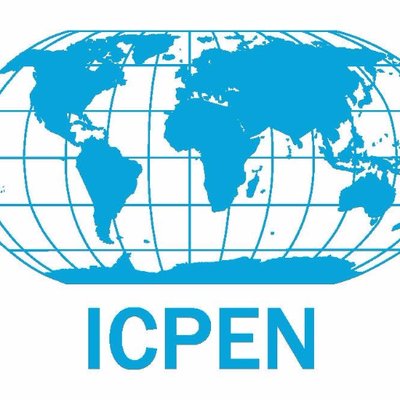About Us
CCPC
The Competition and Consumer Protection Commission (CCPC) is a statutory body under the Ministry of Commerce Trade and Industry, established with a unique dual mandate to protect the competition process in the Zambian Economy and also to protect consumers. The CCPC was established in 1997 under the name Zambia Competition Commission (ZCC). The name was then changed in 2010 to Competition and Consumer Protection Commission (CCPC) following the enactment of the new Act called the Competition and Consumer Protection Act (CCPA) No. 24 of 2010 and repeal of the old Act.
Mission
“To safeguard and promote economic welfare by prohibiting anti-competitive and unfair business practices in Zambia. ”
Vision
“To be a global model in protecting and maximizing economic welfare.”
Our Mandate
The mandate of the Commission cuts across all economic sectors. CCPC regulates the Zambian economy to avoid restrictive business practices, abuse of dominant position of market power, anti-competitive mergers and acquisitions and cartels as these erode consumer welfare. The Commission is also mandated to enhance consumer welfare. In general terms therefore, the principle aim of the Commission is to safeguard competition and ensure consumer protection.
Investigate And Assess Cartels
- Fixing of prices among competitors.
- Division of markets by allocating customers, suppliers or territories.
- Setting of production volume/output.
- Collusive tendering or bid rigging
Review, Investigate And Assess Abuse Of Dominance Conducts Which Takes The Form Of:
- Applying dissimilar conditions to equivalent transactions with other trading parties
- Denying any person access to an essential facility
- Predatory pricing of goods and services
- Excessive pricing of goods and services
- Imposing unfair trading conditions such as exclusive dealing and tying/bundling of products and services
Review, Assess And Investigate Mergers
- Sale or lease of assets of an enterprise to an independent enterprise
- Amalgamation or combination of independent enterprises
- Occurrence of a joint venture that involves two or more independent enterprises
Ensuring That Consumers Are Protected From Unfair Trading Practices
- Investigating and analysing consumer rights violations as stipulated in that Act
- Educating and sensitising the public on consumer protection provisions in the Act as well as their rights as enshrined in other various pieces of legislation
- Carrying out advocacy between the business entities and the consumers and mediating between them
Our Objectives
- To promote a culture of competition for a sustained economic growth and wealth creation.
- To protect and enhance consumer welfare in the economy for the benefit of all Zambians.
The key objectives of the Commission are:
Organizational Values
In the discharge of its functions as a High Performing Organization (HPO), the Commission has committed to be guided by a set of organizational values. These values will influence how it discharges its functions, investigations, public outreach, and stakeholder engagements. These values will additionally serve to guide the conduct of the Board and staff of the Commission.
- Professionalism – We act in a skilled and diligent manner, exhibiting good judgement and polite behavior.
- Integrity – We act fairly, and ethically and endeavor to provide quality services free of corruption.
- Respect – We respect and value all our stakeholders.
- Excellence – We use our skills, and resources to deliver the best services through continuous improvement.
- Responsive – We proactively engage with all our stakeholders and respond in a timely manner.
- Transparency – We are accountable and respect due process.
CORPORATE GOVERNANCE
The Commission has a Board of Commissioners, appointed by the Minister of Commerce, Trade and Industry, which is the governing body and is responsible for the guidance of the Commission’s affairs. The Board has both corporate governance and adjudicative functions under the Act. The Commission also has a Secretariat appointed by the Board, whose primary role is to investigate cases and administer its affairs on a day by day basis.
The operations of the Commission are policy driven and within the confines of the Ministry of Commerce, Trade and Industry (MCTI) Strategic Focus and the 8th National Development Plan (8NDP). The Board has thus a performance contract with MCTI with clear targets and reporting mechanisms and for each year. Under its contractual obligations, the Board is expected to ensure that competition and consumer protection are promoted and protected. The Board further ensures that the operations of the Commission and its financial status are prudent and sound at all times.
BOARD COMMITTEES
The following are the Board Committees with respective terms of reference:
Technical Committee
- • Adjudicating matters referred to it by the Commission.
- • Overseeing the establishment of Guidelines, Regulations and standards of practice and procedure.
- • Suggest amendments to the law.
- • Giving guidance on other legal and technical matters.
Audit and Risk Management Committee
- • Review the Commission's financial related statutory and non-statutory reporting obligations.
- • Advise on risk identification, assessment and mitigation measures, and check on the reasonableness of the effectiveness and robustness of internal control measures.
- • Periodically review the Commission's financial reports in liaison with the External and Internal Auditors.
- • Strategic Planning.
Finance and Administration Committee
- • Advise on Financial issues requiring policy input such as the budgetary Process, Finance Operating Systems and applications.
- • Procurement policy guidelines (as promulgated by the ZPPA Act) relating to the procurement of goods and services; and,
- • Advise on internal financial control systems and provide oversight on financial reporting.
- • Staff affairs.
BOARD OF COMMISSIONERS
The Board of Commissioners is vested with the responsibility, inter alia, of adjudicating on regulatory applications, making determinations and issuing orders. The Commissioners are appointed on a part-time basis for a term of four-years. The Executive Director is an ex-officio Member of the Board. The following was the Composition of the Board, during the period under review.

Ms. Angela Kafunda
Chairperson

Mr. Sikambala M. Musune
Vice Chairperson and Audit and Risk Committee Chairman

Bishop Dr. Wilfred Chiyesu
Finance and Administration Committee Chairman

Mr. Derrick Sikombe
Commissioner

Mr. Pelmel Bonda
Commissioner


 International Consumer Protection
International Consumer Protection